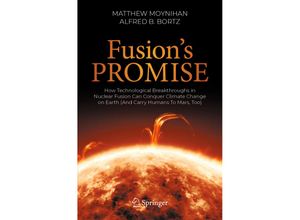For over 60 years scientists and engineers have been trying to crack a seemingly intractable
problem: how to build practical devices that exploit nuclear fusion. Access to electricity has
facilitated a standard of living that was previously unimaginable but as the world's
population grows and developing nations increasingly reap the benefits of electrification we
face a serious global problem: burning fossil fuels currently produces about eighty percent of
the world's energy but it produces a greenhouse effect that traps outgoing infrared radiation
and warms the planet risking dire environmental consequences unless we reduce our fossil fuel
consumption to near zero in the coming decades. Nuclear fusion the energy-producing process in
the sun and stars could provide the answer: if it can be successfully harnessed here on Earth
it will produce electricity with near-zero CO2 byproduct by using the nuclei in water as its
main fuel. The principles behind fusion are understood but the technology is far from being
fully realized and governments universities and venture capitalists are pumping vast amounts
of money into many ideas some highly speculative that could lead to functioning fusion
reactors. This book puts all of these attempts together in one place providing clear
explanations for readers who are interested in new energy technologies including those with no
formal training in science or engineering. For each of the many approaches to fusion the
reader will learn who pioneered the approach how the concept works in plain English how
experimental tests were engineered the future prospects and comparison with other approaches.
From long-established fusion technologies to emerging and exotic methods the reader will learn
all about the idea that could eventually constitute the single greatest engineering advance in
human history.

